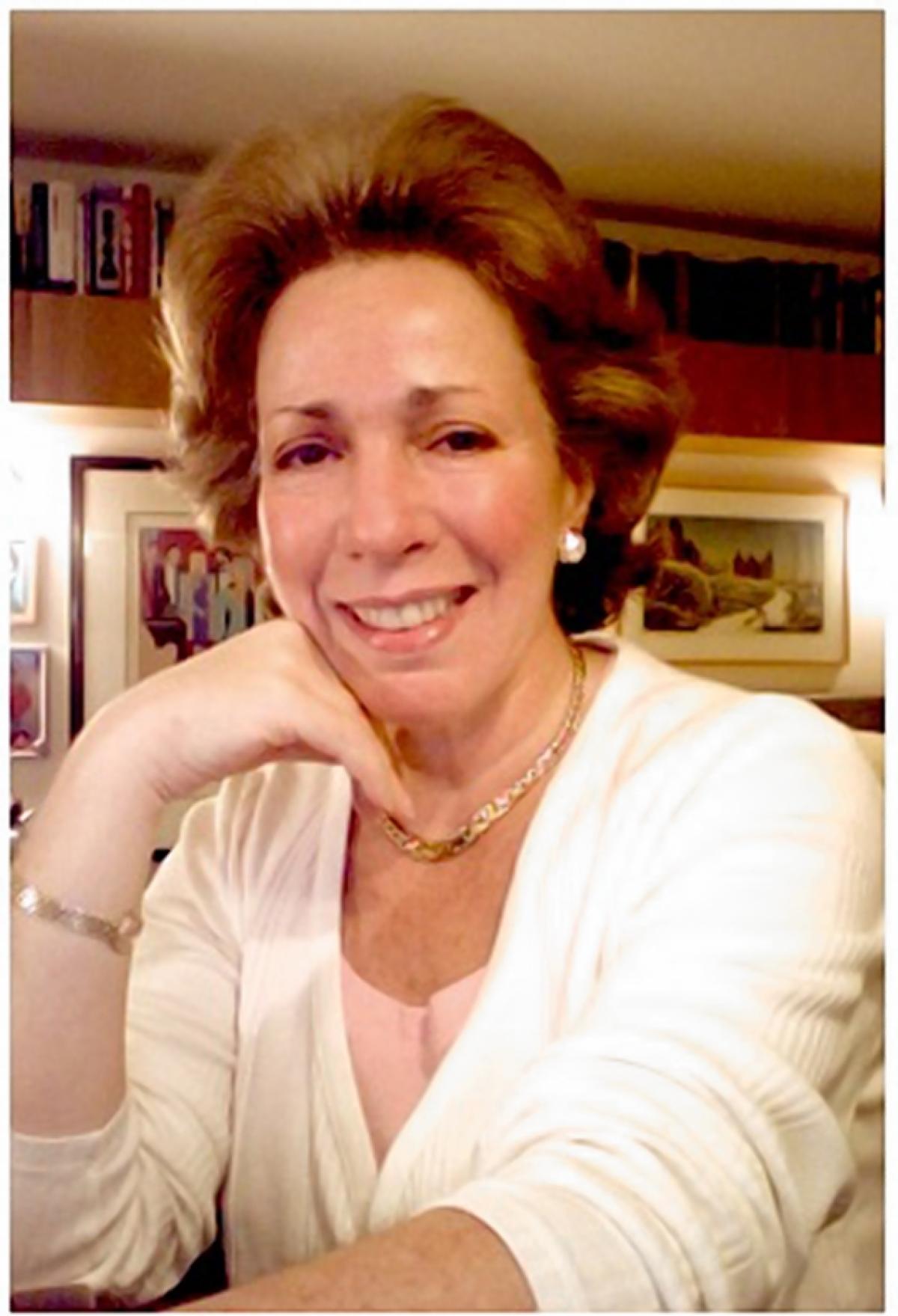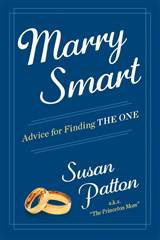Marriage "Straight Talk" Ignites Firestorm
April 13, 2014

Human Resources professional Susan Patton, left, created controversy
when she suggested that women who want family should get their
"Mrs." degree at college, where they'll find compatible men and avoid
their biological clock running out.
The negative reaction, which I will examine tomorrow, is indicative that Feminism
is not about "choice." It's about destroying the institutions of marriage and family.
At Princeton in the 1970's, Patton's desire to get married was considered
"heresy," more evidence that Feminism, and everything associated, is a cult.
"All eight [co-eds] aspired to marriage and motherhood--but not one of them wanted to admit it."
"No women should be authorized to stay at home and raise her children. Women should not have that choice, because if there is such a choice, too many women will make that one" (Feminist pioneer Simone de Beauvoir, Saturday Review, June 14, 1975).
by Susan Patton
USA Today Excerpt from "Marry Smart"
I wrote a letter to the editor of the newspaper of the college [Princeton] I attended forty years ago.
I wrote the letter because I was on campus for a Women and Leadership conference that was followed by a breakout session. This afforded current female undergraduates an opportunity to speak informally with alumnae. There were eight young women at my table and they were told that I am a human resources professional and an executive coach, so naturally we all chatted about career planning, resume writing, and interview techniques. Their eyes seemed to glaze over from yet again hearing still more advice about how to succeed in the working world.
Then I looked at each of them and asked, "Do any of you girls want to someday get married and have children?" Their jaws dropped. They were stunned by the very question. They looked cautiously at each other before sheepishly raising their hands. All eight aspired to marriage and motherhood--but not one of them wanted to admit it.
Now it was my turn to be stunned. These amazing young women were reluctant to share their heartfelt hopes, for fear of critical judgment. It was clear to me that someone had to talk with them honestly about finding husbands, getting married, and having babies.
That someone might as well be me.
 (Patton expanded her advice into this book.)
(Patton expanded her advice into this book.)So I decided to write a letter to the editor, addressed to the daughters I never had. Back when I was an undergraduate, a proud member of one of the pioneering first classes of women to graduate from Princeton University, I dated but I never had a serious boyfriend. Instead of looking for and possibly finding a life partner among my college classmates, I spent almost ten years after college dating men who weren't as interesting, educated, or accomplished as my classmates had been. I ultimately married the man I had been dating for years, because if I was to fulfill my lifelong dream of having children, time was running out. He wasn't the love of my life, but we marry for many reasons. Sometimes, we make sacrifices to achieve our greater goals. I married at thirty-one years old because I knew that I wanted to have children and do so in a traditional marriage--and I was cognizant of the limitations on my ability to procreate. And although after twenty-five years my marriage ended in divorce, I consider it to have been successful--because I had the children I always wanted.
In retrospect, I realize that I may have squandered some of my best years looking for what I probably could have found as a student on campus when I was twenty years old. I wish somebody had told me when I was an undergraduate that I should look more carefully at my male classmates. There must have been many marriageable men in that group. Either I didn't recognize them, or I carelessly dismissed them for superficial reasons, or I allowed myself to be shouted down by feminists who made me feel that it was a betrayal to the sisterhood for an educated woman to be so interested in marriage.
Did the fact that I didn't choose a man with comparable academic credentials damage my marriage and contribute to my divorce? I don't know for sure. But I know it didn't help.
During my four years on campus, I did many things right. I made great friends, had wonderful experiences that I'll remember always, and I graduated! But there are at least as many things I wish I had done differently. I especially wish that I had had sense enough to look for a husband on campus before I graduated.
So I wrote a letter, and it went, as they say, "viral." Honestly, I thought I would just share a few words of simple, maternal advice with the girls on campus, where my younger son was an undergraduate.
I didn't mean to cause an international firestorm or infuriate some women on campus, let alone on the Internet.
(Well, maybe I did expect a little controversy--I am more blunt than most people, I've always been like that--but who knew anyone would pay attention?)
And viral? Who thinks of going viral? Within three days of the publication of my letter to the editor of the Daily Princetonian, my advice exceeded 100 million inquiries on Google worldwide. Not all of the responses were positive. In fact, I was called "retro," "crazy," "a throwback"--and those are some of the nicer epithets. I was accused of being a traitor to feminism, a traitor to coeducation, and an elitist.
 Somewhere early on in the brouhaha, I was dubbed the "Princeton Mom." And you know what? I love that moniker! I earned it, both by graduating from Princeton and by having two children who went there. The advice I offered in the Daily Princetonian was intended for the women on the campus of my beloved alma mater, but it is applicable to smart women everywhere who want a traditional family. To avoid a life of unwanted spinsterhood--with cats!--you have to smarten up about what's important to you, and keep your head in the game. You have to plan for your personal happiness with the same commitment and dedication that you plan for your professional success.
Somewhere early on in the brouhaha, I was dubbed the "Princeton Mom." And you know what? I love that moniker! I earned it, both by graduating from Princeton and by having two children who went there. The advice I offered in the Daily Princetonian was intended for the women on the campus of my beloved alma mater, but it is applicable to smart women everywhere who want a traditional family. To avoid a life of unwanted spinsterhood--with cats!--you have to smarten up about what's important to you, and keep your head in the game. You have to plan for your personal happiness with the same commitment and dedication that you plan for your professional success.Honestly, what about that is so controversial?
Knowing and respecting yourself. That's what it's really about: understanding what's important to you and prioritizing. That's what it's about. When I say, "Find a man," what I really mean is "Find a man who will respect you." And when I say, "Find a husband in college," what I'm really saying is "It's never too early to start planning for your personal happiness and looking for a husband who will respect you." It's never too early, and it's never too late. (Well, that's not really true, but we'll discuss that later.)
So, with the benefit of hindsight, this book contains the advice I wish I had been given when I was younger, which I now offer to educated young women everywhere.
The Letter
March 29, 2013
Advice for the Young Women of Princeton--the Daughters I Never Had
Forget about having it all, or not having it all, leaning in or leaning out . . . here's what you really need to know that nobody is telling you.
For years (decades, really) we have been bombarded with advice on professional advancement, breaking through that glass ceiling and achieving work-life balance. We can figure that out--we are Princeton women. If anyone can overcome professional obstacles, it will be our brilliant, resourceful, very well educated selves.
When I was an undergraduate in the mid-seventies, the two hundred pioneer women in my class would talk about navigating the virile plains of Princeton as a precursor to professional success. Never being one to shy away from expressing an unpopular opinion, I said that I wanted to get married and have children.
It was seen as heresy. For most of you, the cornerstone of your future and happiness will be inextricably linked to the man you marry, and you will never again have this concentration of men who are worthy of you. Here's what nobody is telling you . . . find a husband on campus before you graduate.
Yes, I went there. Men regularly marry women who are younger, less intelligent, less educated. It's amazing how forgiving men can be about a woman's lack of erudition, if she is exceptionally pretty. Smart women can't (shouldn't) marry men who aren't at least their intellectual equals. As Princeton women, we have almost priced ourselves out of the market. Simply put, there is a very limited population of men who are as smart or smarter than we are. And I say again--you will never again be surrounded by this concentration of men who are worthy of you.
Of course, once you graduate you will meet men who are your intellectual equal--just not that many of them. And, you could choose to marry a man who has other things to recommend him besides a soaring intellect. But ultimately, it will frustrate you to be with a man who just isn't as smart as you.
Here is another truth that you know, but nobody is talking about. As freshman women, you have four classes of men to choose from. Every year, you lose the men in the senior class, and are older than the class of incoming freshman men. So, by the time you are a senior, you basically have only the men in your own class to choose from, and frankly--they now have four classes of women to choose from. Maybe you should have been a little nicer to these guys when you were freshmen?
If I had daughters, this is what I would be telling them. - --Susan A. Patton, Class of 1977
----
Related - Interview with Patton -
---------- Reaction on Campus
---
Thanks to Sandeep for the tip!
First Response from Peter R:
Applied anti-feminism, from the heart. And very true. My accountant of more than 20 years is a spinster who comes to the house every month for some paper work. She sees our small kids sometimes and loves them. Just last week she told my wife, you make such beautiful children, why don't you make another one and give it to me, I will raise it.
I don't think she is a feminist, at least not a militant one, but for whatever reason, biology will catch up with people, and at some point in their lives they will remember what it's all about.
Dr. Elisabeth Kuebler, a Swiss-American, who took care of dying people in hospices, made a study and wrote a book about the psychological condition of people in their last phases. She said the deepest and biggest regret of childless, dying people was that they never had children. Very profound, and very true. Feminists with their emptiness have no answer to that.







Jane said (April 16, 2014):
I appreciate Patton's advice to young women. There is only one aspect of her perspective that I felt uncomfortable with. Although I agree that intellectual compatibility is important in marriage, I do not see an unfailing correlation between academic achievement and intelligence. It is not all that rare to find highly intelligent people who are practically allergic to formal education. They may drop out well before graduating from college.